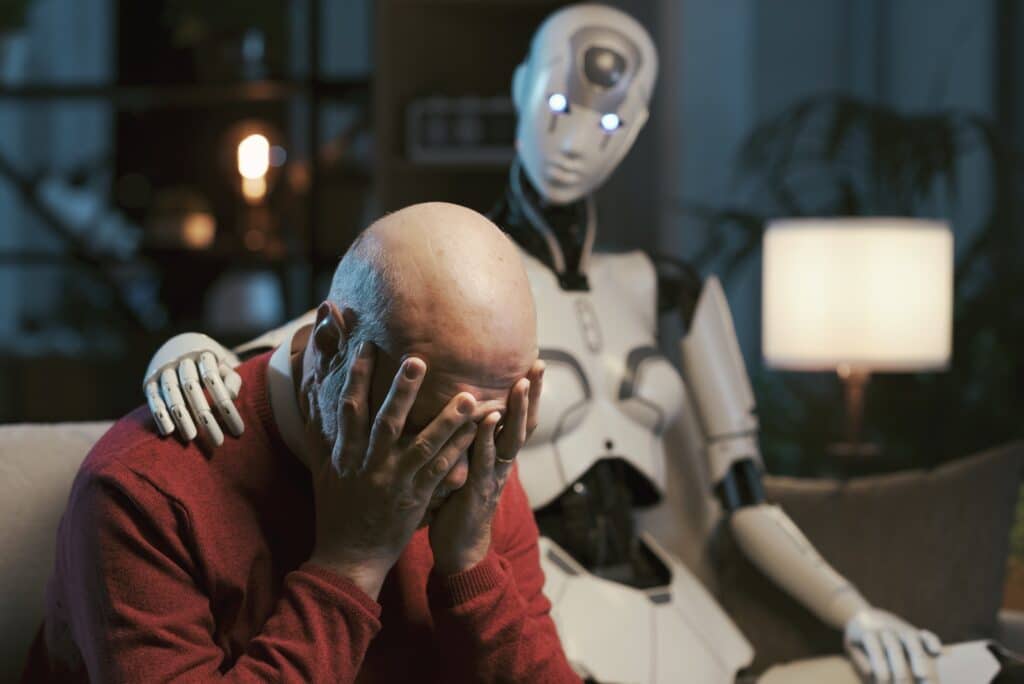Because members of the Actors Guild of America went on strike in July, we might have less new shows and movies to watch in the near future, whether we watch them on streaming, cable, network television or in movie theatres. Entertainment companies are increasingly using artificial intelligence (to capture actors’ likenesses without paying them fairly).
In other words, are workers afraid for their jobs? It appears that those outside of the entertainment industry are not convinced that artificial intelligence (AI) will replace them.
An ID Crypt Global survey reveals that despite all of the recent debate over AI’s rapidly increasing abilities and use in the workplace, more than 80% of people are not concerned about being replaced by the technology.
According to a survey of approximately 1200 office workers in the UK:
In response to the question of whether AI is a positive step, 45% say ‘yes’ and 55% say ‘no’.
AI won’t make their job obsolete one day, according to 81% of respondents.
According to 94% of respondents, they are not learning new skills or looking for new industries to work in to prepare for the eventuality of AI replacing them in the workplace.
However, 52% of respondents believe that the government and their employers share responsibility for retraining them to take on new jobs that AI has not disrupted.
According to the survey, 18% say it’s the responsibility of employers; 16% say it’s the responsibility of governments; and 14% say it’s the responsibility of individuals.
The survey found that overall, opinion is mixed as to whether artificial intelligence is ultimately a good or bad thing for society. The majority of respondents believe it will do more harm than good, while 36% say it will benefit them, while 17% remain unsure.
The fact that so many people have not been convinced that AI will disrupt their lives is worrying. At this point, it’s clear that AI is going to become a dominant force in society, not least in the workplace,” said ID Crypt Global’s CEO, Lauren Wilson-Smith. AI is capable of performing certain tasks at a far higher level than humans and at a much faster and more cost-effective pace than humans can.”
However, AI and automation (including robots and cobots) have been used within manufacturing for many years and accelerated rapidly during the Covid-19 pandemic in the consumer packaged goods (CPG) industry (as well as other industries of course) due to labour shortages.
I previously stated in a blog that the pandemic has driven CPG companies to adopt automated solutions due to disruption of production lines and supply chains, alongside labour shortages. PMMI’s (The Association for Packaging and Processing Technologies) 2022 report, The Future of Automation in Packaging and Processing, reveals how these firms aim to improve their production, storage, and distribution processes with automated solutions like automated guided vehicles, industrial robots, collaborative robots (aka ‘cobots’), and mobile robots; some assisted by AI and advanced vision tools.
According to the report, e-commerce is fueling automation. Moreover, 60% of companies [in the report] reported that labour shortages are extremely impactful on their packaging and processing operations, pushing CPGs towards automation, and making it even more important to develop skilled employees.
In a conversation at the 2022 Pack Expo International, Jorge Izquierdo, vice president, market development at PMMI, explained that the labour shortage has a significant impact, and the question is how technology can compensate for it. Providing machinery that can be operated by fewer people [often one person] while maintaining high speeds and volume is a challenge for equipment manufacturers. The key, he said, is making training accessible and retaining employees.
Artificial intelligence, automation and robotics allow for less skilled workers to be accommodated, and reduce the amount of monotonous and less rewarding manual work that is required. So whether we like it or not, AI and automation (including robots and cobots) are essential in today’s world, maybe not yet in the office, but definitely in manufacturing, and their use will not abate any time soon, but rather will expand.

